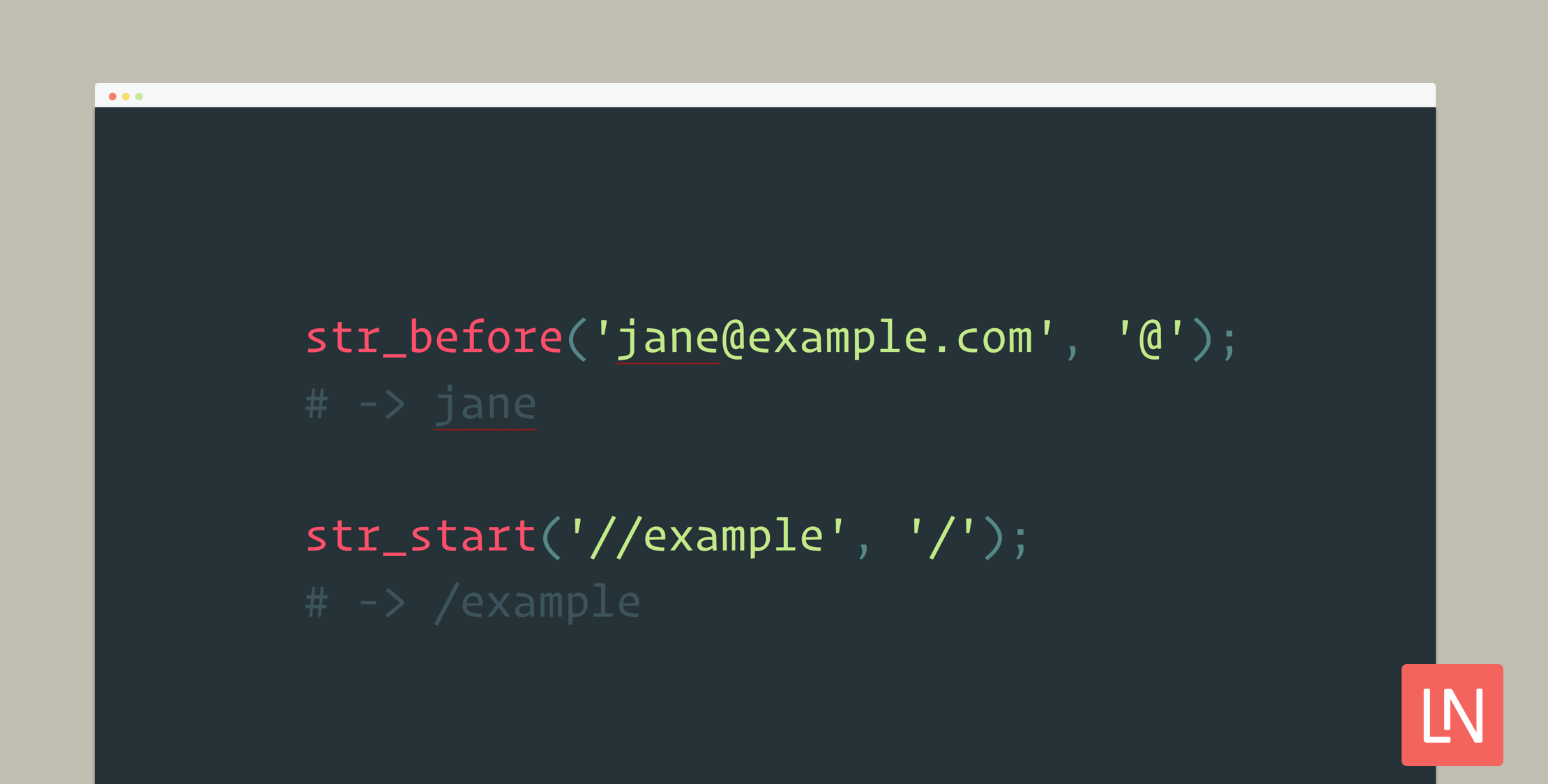New string helpers are finding their way into Laravel leading up to the big 5.5 release, which is planned to drop during Laracon EU 2017.
Here are some of the recent highlights in the String helper class, which has been getting some love lately.
The Str::start() Helper
The Str::start() helper was contributed by Caleb Porzio into the Laravel 5.4 branch. This helper makes sure a string begins with only one instance of a single value.
I think I’ve written the following bit of code at least a hundred times. Let’s say you have an API client baseUrl, and you normalize the URL by removing the trailing slash:
<?php return [ 'my_api' => [ 'base_url' => rtrim(env('MY_API_BASE_URL'), '/'), ],];And then when you need to normalize the path to avoid multiple forward slashes, you might do something like the following:
<?php return config('my_api.base_url') . '/' . ltrim($path, '/')Now with Str::start() and the accompanying str_start() function, your path will be normalized:
<?php $path = '//example'; config('my_api.base_url') . str_start($path, '/'); // -> https://my-api.com/exampleYou can also hear more about this helper in the Twenty Percent Time Podcast episode State Machines.
The Str::before() Helper
The before helper was released into laravel/framework master last month and is exactly the inverse of the str_after helper.
Imagine you wanted to get the first part of an email address:
<?php str_before('jane@example.com', '@');// -> janeThis helper will be in the upcoming Laravel 5.5 release.
The Str::after() Helper
The Str::after() helper returns everything after a given value in a string. Sticking with the email example, let’s say we wanted just to grab the hostname from an email:
<?php str_after('jane@example.com', '@');// -> example.comThe string game is strong with Caleb Porzio, who contributed the Str::after() helper earlier this year!
Learn about all the Helpers
Laravel has an incredible amount of helpers for things like arrays, strings, and URLs. You should check out the official helpers documentation to learn more. I find a useful helper each time I review them.











